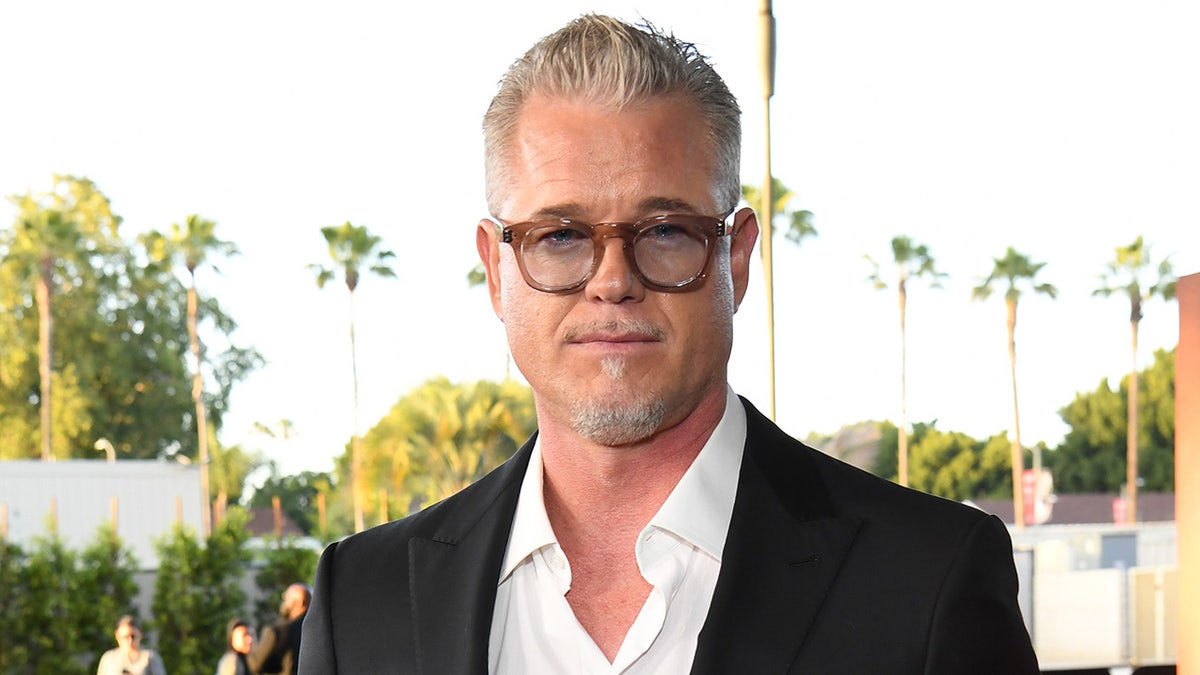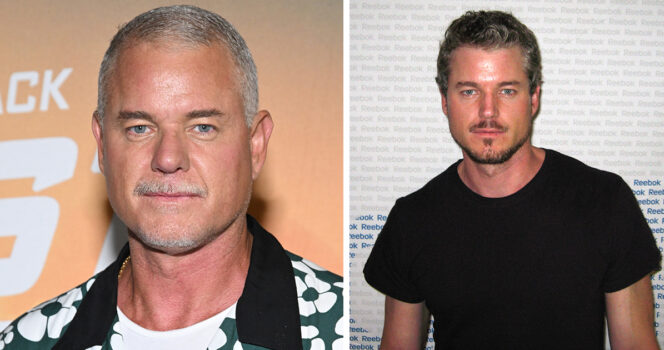Actor Eric Dane, widely known for his roles in Grey’s Anatomy and Euphoria, was hospitalized following a fall related to complications from amyotrophic lateral sclerosis (ALS). The incident occurred shortly before his planned appearance at the 2025 Emmy Awards, where he was scheduled to participate in a special 20th anniversary tribute to Grey’s Anatomy.
Dane, 52, publicly revealed his ALS diagnosis earlier this year, and since then, he has been candid about his health journey. His resilience and advocacy have brought renewed attention to the realities of living with this progressive neurological disease.
A Celebrated Career in Television
Eric Dane rose to international fame through his portrayal of Dr. Mark Sloan, nicknamed “McSteamy,” on the hit medical drama Grey’s Anatomy. His charismatic performance made him a fan favorite during the show’s most-watched seasons. After leaving the series in 2012, Dane continued to build his career with notable roles, including a critically acclaimed performance as Cal Jacobs in HBO’s Euphoria.
Dane’s anticipated return to the spotlight at the 2025 Emmy Awards was set to reunite him with former co-stars in a tribute celebrating two decades of Grey’s Anatomy. However, due to health complications, he was unable to attend the ceremony.
Public ALS Diagnosis
In April 2025, Dane shared with People magazine that he had been diagnosed with amyotrophic lateral sclerosis (ALS). Commonly known as Lou Gehrig’s disease, ALS is a progressive and incurable neurological disorder that affects nerve cells in the brain and spinal cord, leading to loss of muscle control over time.
According to the Mayo Clinic, ALS “causes loss of muscle control. The disease gets worse over time, affecting the ability to walk, speak, eat, and eventually breathe independently. There is currently no cure.” Survival rates vary, with some individuals living several years after diagnosis, while others may live longer. Notable figures who have lived with ALS include physicist Stephen Hawking, who survived for decades, and baseball legend Lou Gehrig, whose name became synonymous with the disease.

Early Symptoms and Mobility Challenges
Only weeks after announcing his diagnosis, Dane appeared on Good Morning America for an interview with journalist Diane Sawyer. He explained that his first symptoms involved weakness in his hands, which he initially attributed to overuse. Over time, the weakness progressed, affecting his dominant side.
The actor shared that his right hand had lost function, and he expected further progression in the months ahead. Despite these challenges, Dane expressed determination to continue working and living fully, noting that maintaining a sense of purpose was crucial for his well-being.
Commitment to Work and Positivity
In June 2025, Dane spoke with E! News, expressing his commitment to continue his professional projects despite the rapid progression of his illness. He explained that work provided motivation and structure, helping him stay mentally sharp and focused.
“I feel great when I’m at work,” he told the outlet, emphasizing that maintaining his career and daily activities was important to him. While acknowledging that there have been setbacks, he highlighted the importance of a positive mindset in facing a serious medical condition.
A Setback Before the Emmys
In September 2025, Dane was scheduled to appear on stage at the Emmy Awards, where he would have joined Jesse Williams to present as part of the Grey’s Anatomy 20th anniversary tribute. However, shortly before the ceremony, he experienced a significant fall at home, a complication related to his ALS symptoms.
As reported by The Washington Post, Dane lost his balance in his kitchen, resulting in injuries that required hospitalization and stitches. The fall prevented him from attending the Emmys, a moment he had been looking forward to for months.
He described the experience as disappointing, as the event would have provided a rare opportunity to reconnect with colleagues and fans in a celebratory setting.

Advocating for ALS Awareness
Despite his health challenges, Eric Dane has become a public advocate for ALS awareness and research. By sharing his diagnosis and personal experiences, he aims to shed light on the impact of the disease and inspire support for individuals and families affected by it.
“This is something I felt compelled to share with people,” he told The Washington Post. He emphasized his desire to contribute to the broader ALS community by using his platform to promote understanding and encourage advancements in research and support systems.
Understanding ALS
ALS affects approximately 5 out of every 100,000 people globally, according to the World Health Organization. Most cases occur sporadically, though a small percentage are inherited. The disease typically progresses over several years, leading to increasing disability.
While there is no cure, early diagnosis, specialized care, and supportive therapies can help improve quality of life. Several medications, including riluzole and edaravone, have been approved to help slow disease progression in some patients. Multidisciplinary care — involving neurologists, physical therapists, occupational therapists, and respiratory specialists — is considered the standard for managing ALS.
Organizations such as the ALS Association and Mayo Clinic continue to support ongoing research to better understand the disease and develop more effective treatments. High-profile cases like Dane’s often bring renewed attention and funding to these efforts.

A Message of Resilience
Throughout his public journey with ALS, Eric Dane has emphasized strength, gratitude, and service. He has acknowledged the emotional and physical challenges of living with the disease, but he remains focused on making a meaningful impact through advocacy and awareness.
His story has resonated deeply with fans who admired his performances on television and now see him confronting one of the most challenging diagnoses with transparency and courage.
Looking Ahead
As Dane continues to manage his condition, his openness has sparked broader conversations about ALS, accessibility, and the importance of medical research. His decision to share his journey publicly has helped destigmatize the disease and encouraged others facing similar diagnoses to seek community and support.
While his absence at the Emmy Awards was a disappointment for both the actor and fans, it underscored the real and unpredictable effects of ALS — and the importance of continued research and awareness.


